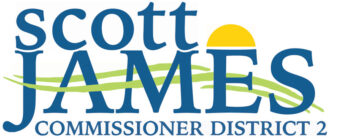I participate in many conversations about homelessness. It is a complex problem that tugs at the base level of our humanity, and the solution takes years and involvement from all areas of society, not just government. At these conversations, I rightfully take heat from constituents who want Weld County to be more involved in the solution.
I agree that Weld County Government needs to be more present at these discussions. I gently remind these constituents that Weld’s Department of Human Services is on the front lines of this battle everyday and they do amazing work. At an all staff meeting (500+ persons) of the WCDHS, I applauded those employees and thanked them for being part of the “we.”
I often hear pronouns in these conversations – “we ought to do this to help the homeless” and “they have implemented an effective program.” Exactly who are the “we’s” and the “they’s?” The we’s and the they’s need to be all of us – government and non-profit and faith based and students – all of us. Not just government.
The Denver Gazette nailed it—throwing more government cash at homelessness is just digging a deeper hole. The real issue isn’t a lack of government funding; it’s that we’ve tried to solve a spiritual problem with bureaucracy. The skyrocketing homelessness crisis in Colorado has roots in addiction, mental illness, and broken social systems. Government programs can’t heal the soul—only the church can.
Here’s the hard truth: In 2024, homelessness increased by 10% in metro Denver alone, driven by a 16% spike in chronic homelessness
MDHI. Shelters are bursting at the seams, and nearly 30,000 people accessed homeless services this year. But what’s the government’s solution? More shelters, more temporary fixes, and safe drug-use sites that only enable addiction instead of treating it (MDHI) (The Colorado Sun).
Where’s the church in all this? Christ himself told us to care for the poor, to love our neighbors—but we’ve outsourced that responsibility to a bloated government that screws up nearly everything it touches. This isn’t a funding issue—it’s a faith issue. When the church steps up and lives its calling, we see real change. Compassion doesn’t mean enabling—it means offering both love and accountability.
Drug addiction deserves treatment and mercy, but handing out needles in “safe” sites only perpetuates the problem. The church has the power to offer real hope and transformation—not just another handout but a way out of the cycle. Government can’t fix addiction. It can’t restore broken lives. But faith-based communities can—and should.
So no, the answer isn’t more government intervention. Government has its role, but it’s not the single-source solution. It’s time for the church to step out of its comfort zone, roll up its sleeves, and do what it was always meant to do: minister to the sick, care for the homeless, and offer real solutions that start in the heart.


